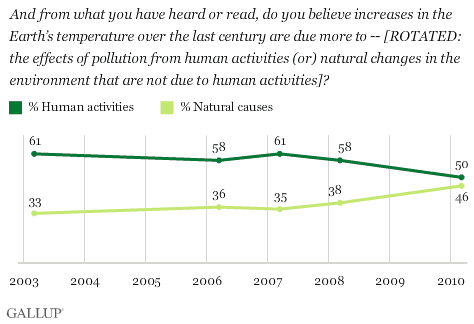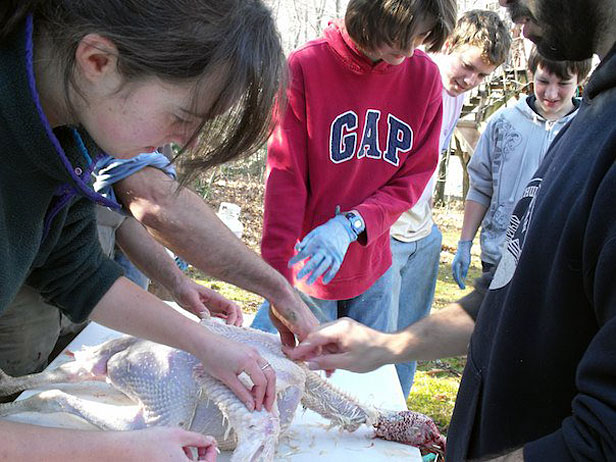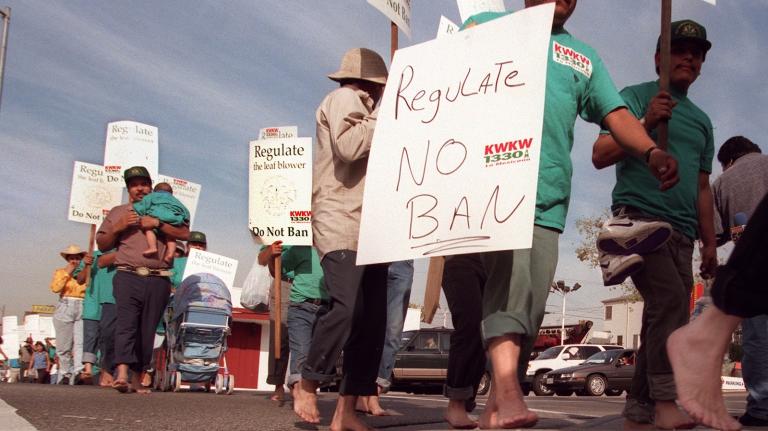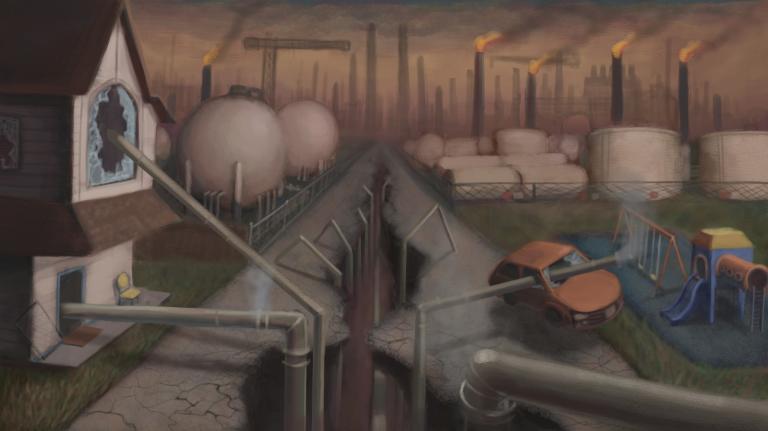In the U.S., belief in human-caused climate change has dropped off considerably since 2008 or so.

People have come up with some pretty baroque theories around this, but the explanation seems simple enough: the economy has been in the tank and partisanship has been on the rise. This study indicates that people’s acceptance of climate change tends to rise and fall with the economy. And as the latest from Pew and Gallup make clear, the vast bulk of the shift in climate change attitudes since 2008 has come from a dropoff among conservatives (and conservative-leaning independents). The economy plus partisanship.
Pundits always find some way blame this on liberals — their messaging is bad, they chose the wrong policies, Al Gore is fat — but the fact is that every time Democrats take control of government there’s an outbreak of nutty, conspiratorial extremism on the right. (Read Rick Perlstein on this.) This is just the latest episode in a long-running series. The details of climate science don’t have much to do with it.
This simple explanation doesn’t seem to satisfy people, though, so you get hype around a new study out of UC-Berkeley last week. It showed that for those with a “just world” view (that the world is predictable and fair), messages focused on the dangers of climate change can have the perverse effect of decreasing confidence in the science. Images of children and other innocents suffering do violence to the notion of a just world. When contrary facts collide with a worldview, it’s generally the facts that give way, not the worldview.
Fine. That’s a modest and reasonably interesting finding about how certain messages (in isolation) affect certain kinds of people. But this is how the paper’s abstract hypes the result:
Though scientific evidence for the existence of global warming continues to mount, in the U.S. and other countries belief in global warming has stagnated or even decreased in recent years. One possible explanation for this pattern is that information about the potentially dire consequences of global warming threatens deeply held beliefs that the world is just, orderly, and stable.
This explains the last two years? People were too scared about climate change? Hm. The authors offer no evidence that the just-world view has become sharply more common since 2008. U.S. public engagement with climate change seemed to peak around 2007, right around the time the dread Al Gore released his fear-filled An Inconvenient Truth. Since the 2008 campaign, happy-shiny messages about green jobs and economic competitiveness and solutions have flooded the airwaves … and yet …
It’s almost like the details of how climate science and policy are presented (to the relatively small number of Americans exposed to them at all) pale in significance next to larger socioeconomic forces. Occam’s razor: it’s not just for beard trimming any more.
—–
P.S.: How should we interpret what people say in climate change polls? Should we care as much about those polls as we do? More on these fascinating questions next post!




